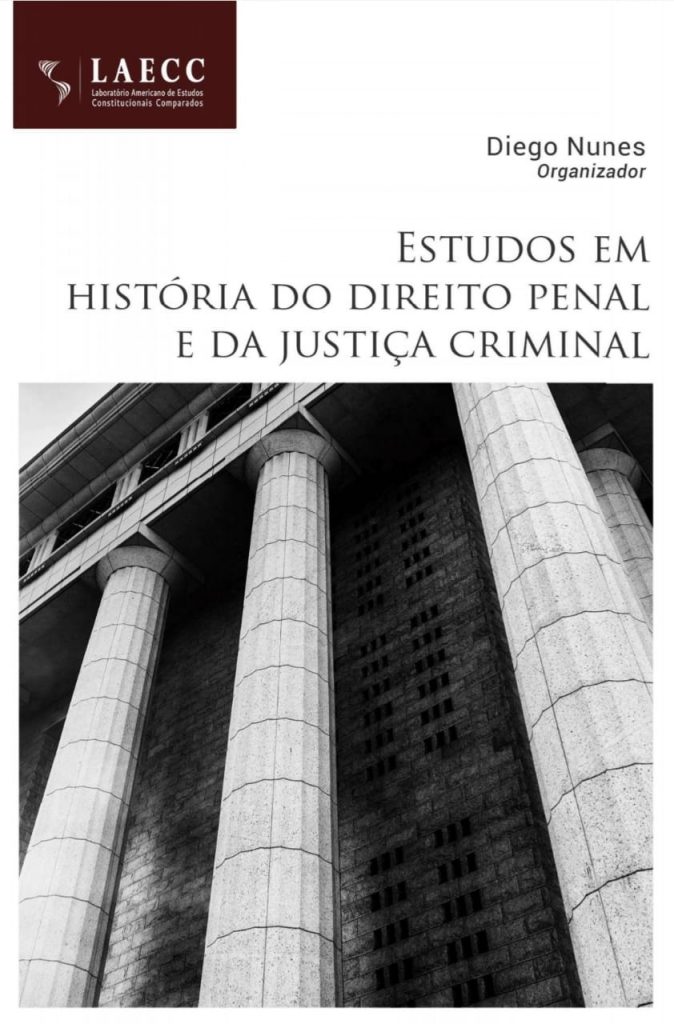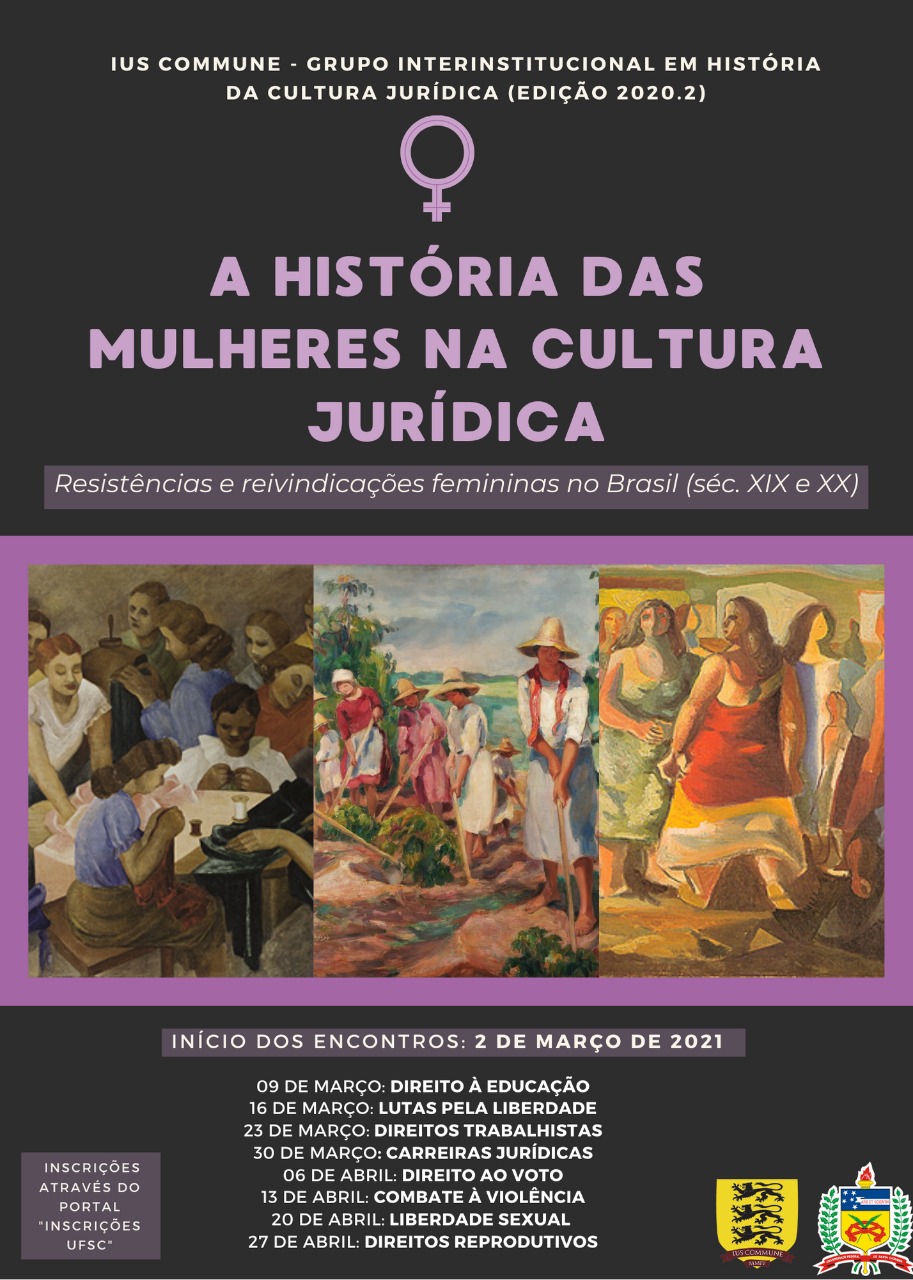Book: Studies in the History of Criminal Law and Criminal Justice

It is with joy to present the book Studies in history of criminal law and criminal justice, organized by Professor Diego Nunes from the collective effort led by Ius Commune – Research Group on The History of Legal Culture – UFSC/CNPq and with the help of Studium iuris – Research Group on The History of Legal Culture – UFMG/CNPq, as well as historians of brazilian and European law. This book aims to contribute to the affirmation of the field of the history of law in Brazil, and the history of criminal law and criminal justice in particular.
The work takes care of a temporal arc with approximately two centuries, encompassing the foundation of legal modernity at the end of the eighteenth century, and nineteenth century and some modern declinations throughout the twentieth century.
Click here to access the full book!
Contents
Presentation
Technical Note
Contents
Part I
History of Criminal Law and European Criminal Justice
- Chapter 1 | Judicial sources and legal sources: reflections on the current stage of studies on the history of crime and criminal justice – Mario Sbriccoli
- Chapter 2 | The legislator’s response: reforms and restorations in criminal justice after Beccaria – Ettore Dezza
- Chapter 3 | Cain’s mark: the search for the “delinquent man” between medicine and law – Paolo Marchetti
- Chapter 4 | The role of the “personality of the State” in the criminal elaboration of Italian fascism: laesa maiestas and technicality-legal in the Rocco Code (1930) – Arno Dal Ri JR., Kristal Moreira Gouveia
- Chapter 5 | Extraction in fascist Italy (1922-1943) and in Brazil by Getúlio Vargas (1930-1945): between the rise of the “criminal law of fascism” and the survival of the liberal tradition of criminal law – Diego Nunes
Part II
History of Criminal Law and Luso-Brazilian Criminal Justice
- Chapter 6 | “Without perfect and legal proof no one should be punished”: the regime of evidence in the project of Criminal Code of Mello Freire – Marina Tanabe do Livramento, Murilo Aparecido Carvalho de Robbio
- Chapter 7 | Reminiscences of death as a penalty in the portuguese criminal codification process: from the Philippine Ordinances to the Penal Code of 1886 – Giácomo Tenorio Farias
- Chapter 8 | The last hanged in the province of Rio de Janeiro (1869): notes to the “biography of Ramon Nietto by a fellow inmate” – Joao Luiz Ribeiro
- Chapter 9 | Absence of criminalization of women who abort in the Criminal Code of 1830: the protection of private spheres of punishment before the slave regime – Barbara Madruga da Cunha, Mario Davi Barbosa
- Chapter 10 | From apothecaries to traffickers: the mistaken belief in terminological and dogmatic identity as a character of continuity in brazilian criminal drug policy between the Criminal Code of 1890 and the special criminal laws of the 1910s and 1920s – Ricardo Ávila Abraham, Carlos César Rodrigues
- Chapter 11 | The legal culture of criminalization of Afro-Brazilian religions: the experience of São Pedro do Uberabinha (Minas Gerais) – Vanilda Honória dos Santos, Biatriz Bittencourt de Assis
- Chapter 12 | Reflections on the Positive School: the reinterpretation of its institutes in the Brazilian Penal Code of 1940 – Julia Farah Scholz
- Chapter 13 | The crime of abortion in the Penal Code of 1940 and its “substitute” of 1969: a feminist analysis of discourses for its maintenance – Barbara Klopass Locks by Godoi, Tayná Ferreira








